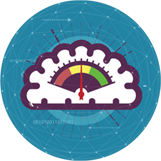(In Press). Differentiation Tracks Improved Recall of Competing Memories Following Interleaved Study and Retrieval Practice. Cerebral Cortex.
Abstract: Selective retrieval of overlapping memories can generate competition. How does the brain adaptively resolve this competition? One possibility is that competing memories are inhibited; in support of this view, numerous studies have found that selective retrieval leads to forgetting of memories that are related to the just-retrieved memory. However, this retrieval-induced forgetting (RIF) effect can be eliminated or even reversed if participants are given opportunities to restudy the materials between retrieval attempts. Here we outline an explanation for such a reversal, rooted in a neural network model of RIF that predicts representational differentiation when restudy is interleaved with selective retrieval. To test this hypothesis, we measured changes in pattern similarity of the BOLD fMRI signal elicited by related memories after undergoing interleaved competitive retrieval and restudy. Reduced pattern similarity within the hippocampus positively correlated with retrieval-induced facilitation of competing memories. This result is consistent with an adaptive differentiation process that allows individuals to learn to distinguish between once-confusable memories. »PDF
